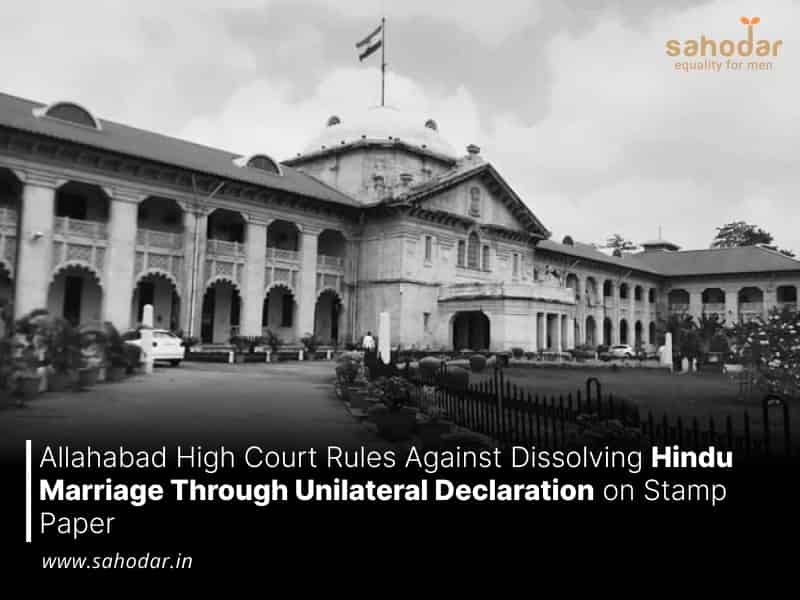The Allahabad High Court has ruled that dissolution of marriage between two Hindus must adhere to the recognized methods outlined in the Hindu Marriage Act. Unilateral declarations made on stamp papers are not considered valid means of dissolution.
In a recent case, Justice Subhash Vidyarthi presiding, addressed a Criminal Revision petition where a husband contested a family court’s decision to allocate Rs. 2200 per month as maintenance to his wife under Section 125 of the Criminal Procedure Code (CrPC).
The husband argued that the couple had mutually consented to divorce according to local customs 14 years prior, which was not disclosed by the wife when she filed for maintenance. The alleged divorce agreement, unilaterally drafted on a Rs. 10 stamp paper by the wife with multiple witnesses, was presented as evidence.
The court emphasized that Hindu marriages cannot be dissolved through unilateral declarations on a Rs. 10 stamp paper, as it does not comply with legally recognized methods of dissolution. Consequently, the marriage remained intact, and the wife was deemed legally wedded to the petitioner.
Regarding the 14-year delay in invoking Section 125 CrPC, the court noted that the law does not impose a specific time limit for seeking maintenance. In this case, the wife’s application was initially filed in 2011, but her ability to pursue it was impeded by personal tragedy following her brother’s passing.
The court also considered the wife’s decision to live separately from her husband, given his cohabitation with another woman without formal dissolution of their marriage. This circumstance was deemed sufficient cause for the wife’s separate residence.
“…when the marriage between the revisionist and the opposite party has not been dissolved by any manner known to law, it continues to subsist and the respondent having married another lady and having procreated three children from her, has given rise to a reasonable cause to the opposite party to live separate from the revisionist,” the Court remarked.
Furthermore, the Court noted that according to the Supreme Court’s ruling in the case of Swapan Kumar Banerjee v. State of West Bengal (2020), a wife retains the right to file an application under Section 125 CrPC even after the dissolution of her marriage.
Considering these facts, the Court affirmed the Family Court’s decision, upholding the directive for the husband to pay Rs. 2200 per month as maintenance to his wife. Consequently, the husband’s revision petition was dismissed.

